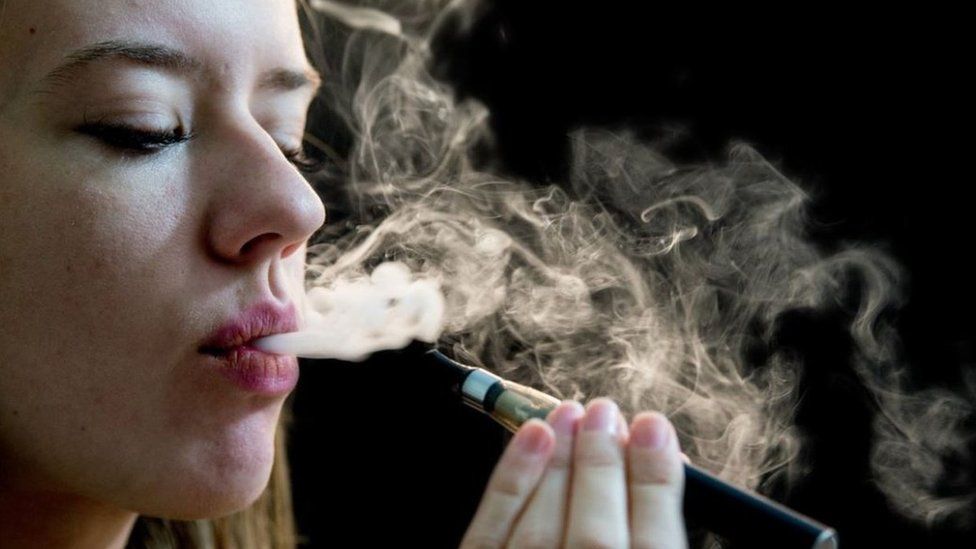ARTICLE AD BOX
 Image source, Getty Images
Image source, Getty Images
By Jennifer McKiernan & Helen Catt
BBC Politics
MPs will debate plans for some of the world's toughest anti-tobacco laws on Tuesday.
Rishi Sunak wants to make Generation Alpha, born since 2009, the UK's first smoke-free generation in a major public health intervention.
Anyone turning 15 from this year would be banned from buying cigarettes under the Tobacco and Vapes Bill, which also makes vapes less appealing to children.
A number of Tory MPs have told the BBC they won't back the bill.
The bill would make the sale of tobacco products, rather than the act of smoking, illegal.
Tobacco use is the UK's single biggest preventable cause of death, killing two-thirds of long-term users and causing 80,000 deaths every year.
On top of that, a patient is admitted to hospital with a smoking-related condition, such as heart disease, strokes and lung cancer, almost every minute in England.
Health Secretary Victoria Atkins said the bill would save thousands of lives and "ease the strain" on the NHS.
She said: "Too many people know someone whose life has been tragically cut short or irreversibly changed because of smoking, which despite significant progress remains the UK's biggest preventable killer.
"The truth is that there is no safe level of tobacco consumption. It is uniquely harmful and that is why we are taking this important action today to protect the next generation."
Under the plans, trading standards officers would get new powers to issue on-the-spot £100 fines to shops selling tobacco or vapes to children, with all the money raised going towards further enforcement.
There would also be new restrictions on flavours, packaging and the sale of vapes to make them less appealing to children.
Figures show that one in five children has tried vaping despite it being illegal for under-18s, while the number of children using vapes has tripled in the past three years.
'A game-changer'
The bill is now being given its second reading, which is the first opportunity for MPs to debate and vote on the broad issue, before more detailed scrutiny takes place in further stages.
Labour is backing the bill, meaning it's almost certain to become law later this year, but Conservative MPs will get a free vote on it so they won't be ordered to back the government.
Some Tory MPs object to the plan because they believe it is unworkable, others because they say it's un-Conservative. Some MPs intend to try to amend the legislation further along in the process.
Opponents include former prime ministers Boris Johnson, who has called the plans "barmy", and Liz Truss, who is expected to warn against "banning things" in the Commons debate.
Ms Truss told the BBC's Political Editor Chris Mason that plans to phase out smoking over time were "unconservative".
She said "we should absolutely protect children from damage and danger while they are developing decision-making capabilities", but added: "We're a free country.
"We shouldn't be telling people not to smoke and I worry about where it will lead."
As this would be a free vote, Tory MPs voting against the bill or abstaining would not be considered as rebelling.
But it would still be embarrassing - and potentially problematic - for Mr Sunak if a sizeable chunk of his party chose not to back his policy.
Health organisations and charities have lined up to urge MPs to support the bill, including Dr Charmaine Griffiths, British Heart Foundation chief executive, who said the law would be a "game-changer".
She added: "Decisive action is needed to end this ongoing public health tragedy - we urge every MP to vote for this landmark legislation."
Professor Steve Turner, president of the Royal College for Paediatrics and Child Health, said the change would undoubtedly save lives.
He said: "By stopping children and young people from becoming addicted to nicotine and tobacco we decrease their chances of developing preventable diseases later in life, and will protect children from the harms of nicotine addiction."
Related Internet Links
The BBC is not responsible for the content of external sites.

 9 months ago
46
9 months ago
46








 English (US) ·
English (US) ·